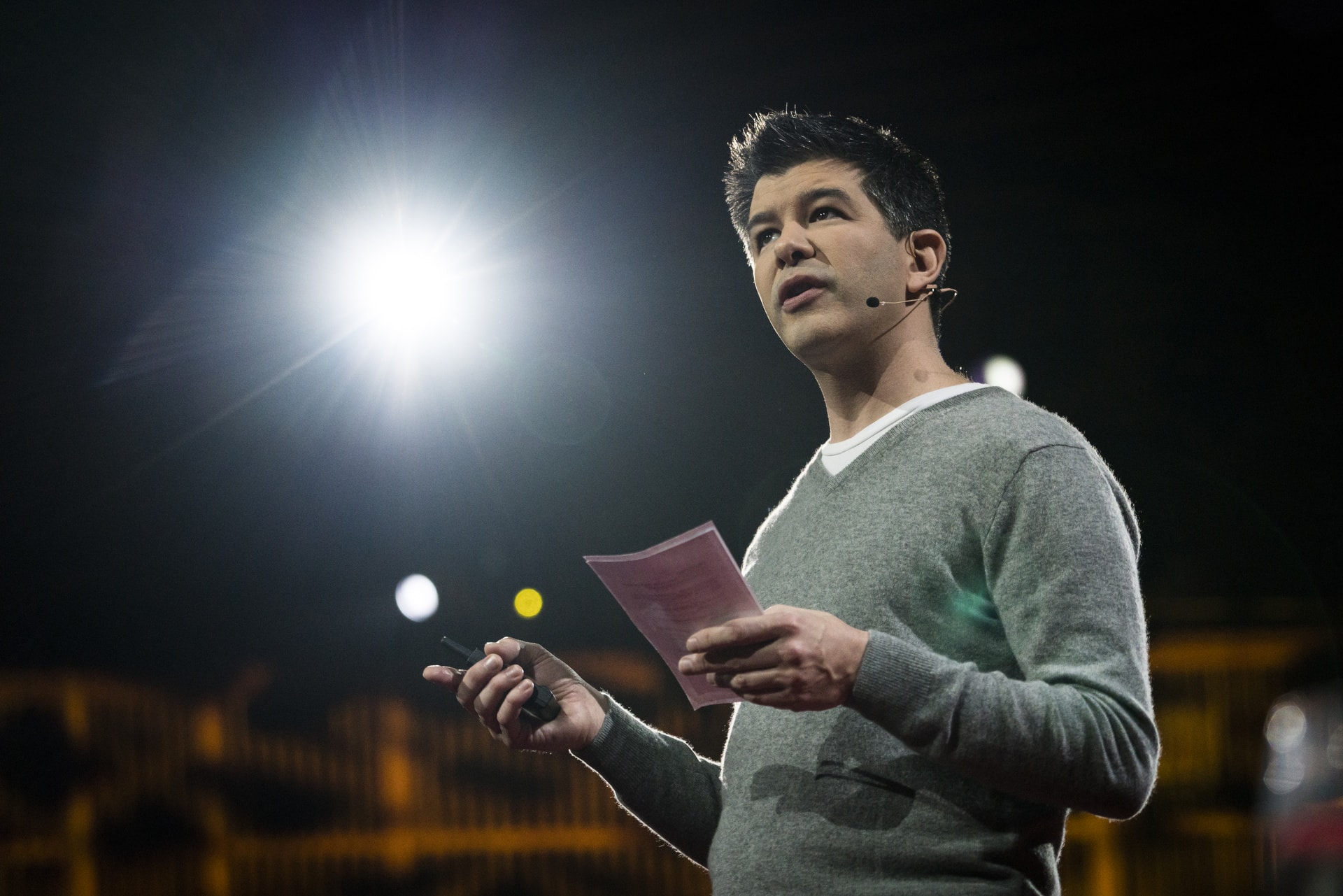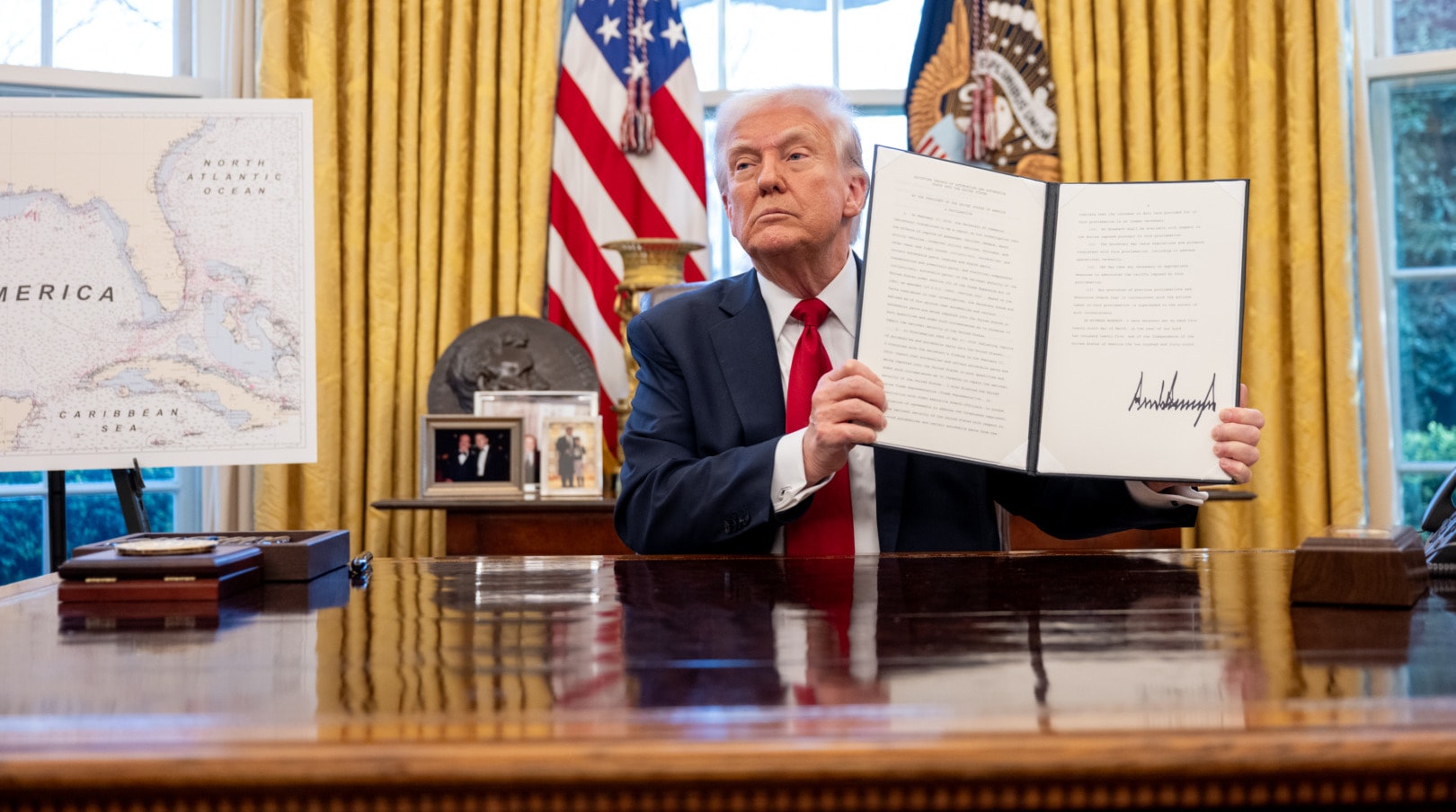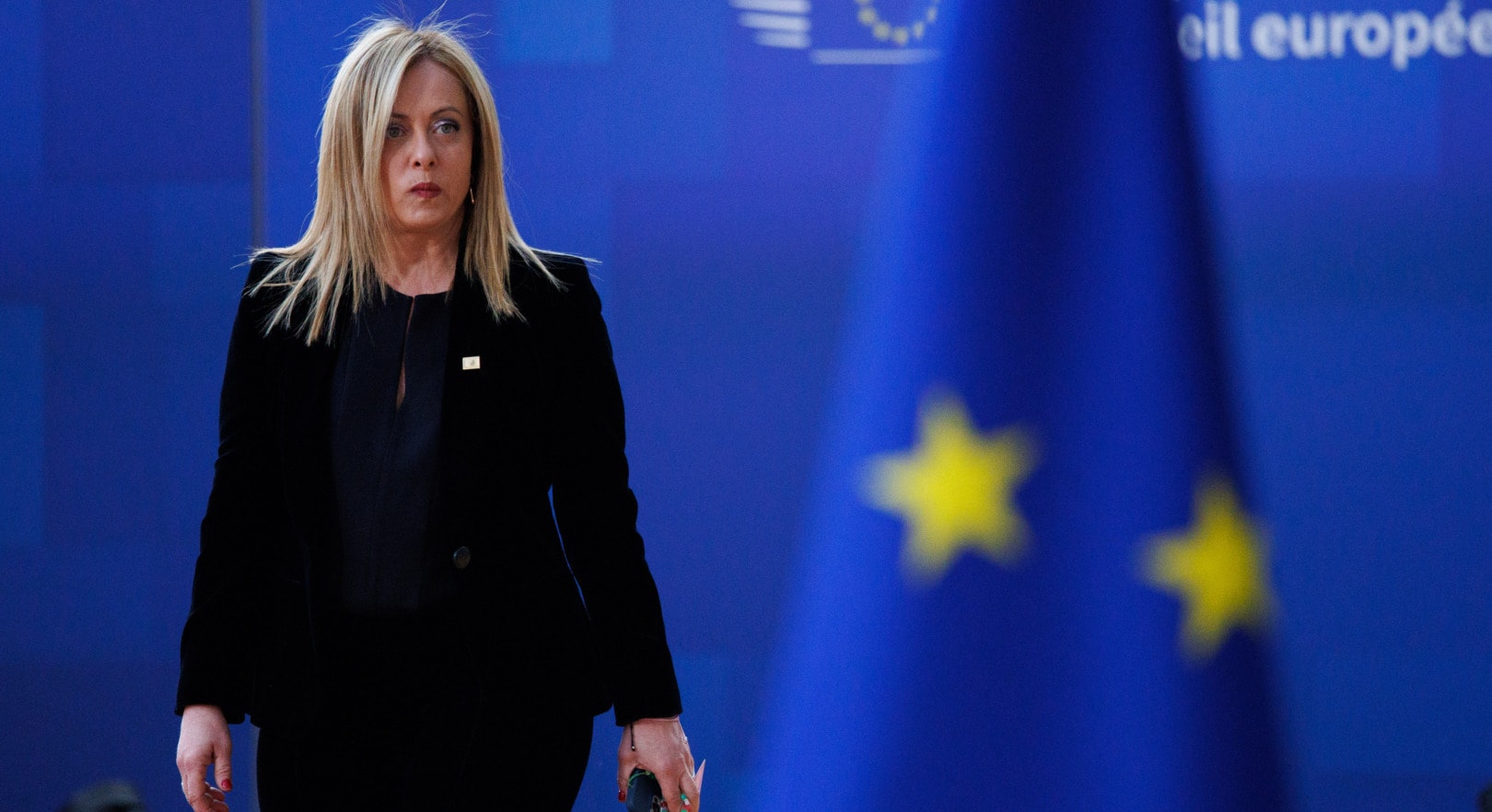A leaked trove of over 124,000 confidential documents dubbed the Uber files shed light on the company’s history of aggressive lobbying, sophisticated law evasion tactics, and ethically contestable practices undergirding the tech giant’s global expansion – at times with the backing of top politicians including current French President Emmanuel Macron, and ex-EU commissioner Neelie Kroes.
Over 40 media outlets around the world, including The Guardian, The Washington Post, and the International Consortium of Investigative Journalism, have collaborated for over four months to assemble the explosive cache of instant messages, corporate emails, memos, company presentations, briefing papers, and other documents.
It reveals Uber executives were under no illusions as regards the illegal nature of their cab-hailing app, which undercuts transport regulations and workers’ rights frameworks.
Instead of reeling from the backlash they faced, Uber executives doubled down on their expansion goals by launching a vast lobbying and public relations campaign with the aim of gaining the support of top politicians who could then push for regulatory changes in their favour.
The Uber files span a five-year period from 2013 to 2017, when the company was run by its co-founder Travis Kalanick, who resigned in 2017 after five of Uber’s major investors pressed for his departure.

Already at the time, the company was mired in scandal and lawsuits over its “unrestrained” workplace culture, allegedly plagued with sexual harassment and discrimination, and relentless attempts at evading authorities.
But it’s the first time a wide-scale investigation is able to give the public an insider view into Uber’s expansion campaign – and what lengths it went to in pursuing success. Today, Uber is a $42 billion company, and one of the most-used transportation firms on the planet, making around 19 million journeys every day.
Founded in 2010, the firm swiftly launched operations to bulldoze its app-based ride-hailing services in hundreds of cities around the globe, presenting itself as a technology platform helping to connect willing passengers and drivers.
The company burnt through venture capital funding to heavily subsidise riders’ fares, seducing drivers with good pay rates while making sure their fares remained the cheapest on the cab market. These artificially low prices contributed to disrupting established cab-hailing businesses, whose drivers had often invested considerable time and money in acquiring a licence and certifications Uber does not require from their drivers.
In Paris, a taxi driver’s license currently costs around €120 000, but between 2012 and 2014, just before Uber started dominating the market, it was as high as €260 000.
The Uber files show that at one point in Madrid the company offered $17.50 an hour to each driver, making for two-thirds of their pay. In Hamburg, an Uber driver would have made $2.20 per hour under market conditions, minus a small commission, but the firm paid each driver an additional $15 per hour – an unsustainable pricing model which, once subsidises waned, resulted in Uber drivers themselves struggling to make ends meet.
Bare-knuckle lobbying for the smartphone era
The company often sought the support of major political figures by going over the heads of city mayors and transport authorities, hoping that befriended legislators would press changes to local taxi and labour laws, and facilitate Uber’s otherwise illegal operations.
And Uber executives were well aware of that. A text sent by the company’s head of communications Nairi Hourdajian to one of Uber’s top European lobbyists in December 2014 reads: “Remember that everything is not in your control and that sometimes we have problems because, well, we’re just f—ing illegal.”
Another senior executive, Thibaud Simphal, general manager of Uber France in 2016 (when Parisian protests reached a violent peak), joked that they had “officially become pirates.”

In 2016, in a bid to counter the backlash against the company, Uber set aside a total of $90 million for lobbying and public relations work and hired communications heavyweights such as David Plouffe, who was Barack Obama’s campaign manager in 2008.
The Uber files also reveal how the company paid prominent academics hundreds of thousands of dollars to produce research that supported the firm’s gig-economy model.
Uber executives met face-to-face with political figures such as the then US vice-president Joe Biden, but also Emmanuel Macron, at the time Minister of the Economy, ex-EU Commissioner Neelie Kroes, who lobbied for Uber before her term ended, but also the Irish prime minister Enda Kenny, the Israeli prime minister Benjamin Netanyahu, and George Osborne, the UK’s chancellor at the time.
Emmanuel Macron appears to have gone through “spectacular” lengths to help Uber. While French taxi drivers took to the streets in sometimes violent protests, Macron told Travis Kalanick he would reform laws in Uber’s favour, allowing Uber frequent and direct access to him and his staff, and even telling the company he had arranged a secret “deal” with his then Prime Minister Bernard Cazeneuve.
The French President reportedly texted Kalanick directly to say “We had a meeting yesterday with the prime minister. Cazeneuve will keep the taxi(s) quiet and I will gather everybidy [sic] next week to prepare the reform and correct the law. Caz accepted the deal.”
In October 2015 in Marseille, a prefectorial decree against Uber left the company executives “dismayed,” according to a message sent immediately to Emmanuel Macron by Mark MacGann, Uber’s chief lobbyist in Europe, the Middle East and Africa. MacGann asked Macron to check in with the French Cabinet, to which Macron answered: “I will look at this personally.”
The decree was later cancelled and replaced with a more ambiguous order. A message from MacGann to Macron reads: “Good cooperation with your cabinet… Thank you for your support.” Emmanuel Macron answered: “It’s normal.”
In a statement released in response to the leak, Kalanick’s spokesperson accused reporters of “pressing a false agenda that Mr Kalanick directed illegal or improper conduct“ and insisted that Uber’s operations aimed to change “the status quo” which then prevented the “much needed” adaptation of the transportation industry to a smartphone era.
The pirates’ “kill switch”
Whenever Uber tried to take over a new city, transport officials, police, and regulatory institutions sought to crack down on it. The company’s offices in dozens of countries were repeatedly raided by authorities.
But law enforcement entered the rooms only to see computer screens go black. Uber had developed a sophisticated tactic to prevent authorities from accessing the company’s main data systems, known internally at Uber as the “kill switch.”
The technique, signed off by Uber’s lawyers, was deployed at least 12 times during raids in France, Belgium, the Netherlands, Hungary, Romania, and India.
Uber’s spokesperson said the kill switch software “should have never been used to thwart legitimate regulatory action” and was no longer used after Dara Khosrowshahi, Uber’s current CEO, replaced Travis Kalanick. She added that “mistakes” that were made under Kalanick five years ago led to “one of the most infamous reckonings in the history of corporate America.”
“That reckoning led to an enormous amount of public scrutiny, a number of high-profile lawsuits, multiple government investigations, and the termination of several senior executives.”
“It’s also exactly why Uber hired a new CEO, Dara Khosrowshahi,” she said, “who was tasked with transforming every aspect of how Uber operates.”
“Embrace the chaos”
The Uber files also exposed how the firm’s executives instrumentalised violence against their drivers to press their case with the public and foreign governments at a time when protests against Uber flared up, particularly in Europe.
Uber then pushed a “David versus Goliath” narrative framing their innovative start-up as being viciously attacked by antiquated, “cartel”-like cab-hailing systems across the globe.
When Uber launched across India, the executive leading Uber’s expansion across Southeast Asia sent a memo to the managers urging them to focus on driving growth, even when “fires start to burn.”
“Know this is a normal part of Uber’s business,” he said. “Embrace the chaos. It means you’re doing something meaningful.”
In January 2016, as taxi strikes and riots unfolded in Paris, Kalanick pushed for a counter-protest, ordering French executives to send Uber drivers to the scene of the riots despite the threat it posed for their security.
When lobbyist Mark MacGann raised concerns about violence against Uber drivers, warning that “extreme right thugs” had infiltrated some taxi protests and were “spoiling for a fight,” Kalanick answered: “I think it’s worth it.”
“Violence guarantees success,” he said. “And these guys must be resisted, no?”
The active decision to press ahead with sending vulnerable Uber drivers to hostile protests was consistent with what one former executive described to The Guardian as a strategy of “weaponizing” drivers, and using violence against them to “keep the controversy burning.”
Leaked emails suggest these tactics were deployed again in Italy, Belgium, Spain, Switzerland, and the Netherlands, where Uber’s attempts at upending the markets had also sparked a fierce backlash.
Documents from the Uber files show that attacks against Uber drivers had already become frequent by mid-2015, to the extent that the company had set up an internal “Taxi Intimidation Tracker.”
Kalanick’s spokesperson responded to the allegations by questioning the documents’ authenticity: “Mr Kalanick never suggested that Uber should take advantage of violence at the expense of driver safety.”
The statement from Uber’s spokesperson appeared to agree that Kalanick never wanted violence against Uber drivers, though it acknowledged “past mistakes” in the company’s treatment of drivers.
“There is much our former CEO said nearly a decade ago that we would certainly not condone today,” she said. “But one thing we do know and feel strongly about is that no one at Uber has ever been happy about violence against a driver.”
“We have not and will not make excuses for past behaviour that is clearly not in line with our present values,” she concludes. “Instead, we ask the public to judge us by what we’ve done over the last five years and what we will do in the years to come.”
Where do we go from here?
For all of Uber’s current display of repentance and goodwill, the reality is that the Uber files sent shockwaves across the world and are likely to have a major political impact. It raised suspicions over important lawmakers’ ethos, and somewhat reignited the once vocal and widespread hostility it had managed to allay.
As the former Commission Vice President Neelie Kroes comes under fire for having breached the EU Transparency Register, Green MEP Daniel Freund sent a letter to President of the European Parliament Roberta Metsola and outgoing Secretary-General Klaus Welle urging them to “take the necessary steps to investigate and sanction Uber.”
As for Macron, the beginning of his second term has just gone from challenging to flat-out rough. Already lacking an absolute majority in the French National Assembly, he is now faced with embattled opposition parties demanding that he explains himself, and risks seeing his fragile popularity rates plummet even more.
Editor’s Note: The opinions expressed here by Impakter.com columnists are their own, not those of Impakter.com. — In the Featured Photo: A ride in an Uber vehicle. Source: Noel Tock/Flickr.














